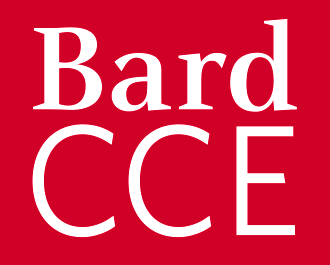Student Course Moderators Trace Early Patterns of Global History to Shed Light on the Present
Henry Hubner, Bard ‘28 (she, her), Eleanor Petersen-Rockney, Bard ‘25 (she/they), and a filtered portrait of Aleksandra D., Smolny Beyond Borders ‘25 (she/her).
Under the guidance of professors at Cambridge University and other institutions, enrolled students trace early patterns of globalization to see if they can shed light on the current era, focusing on momentous forces and events, such as slavery, the Black Plague, and warfare. With the support of cutting-edge technologies and pedagogical practices, including training in oral history and documentary methods, the Global History Lab allows students to interpret the global past through their own lived experiences.
Different Experiences with Similar Responses
This year, 400 enrolled students are interacting with peers at 20+ partner institutions across the network as they learn about global history through dynamic, cross-cultural conversations. One way they do this is through engaging in global forums, such as a recent session with fifty students discussing the history of empire, slavery, and revolution.
During the session, two Bard students, Eleanor Petersen-Rockney Bard ‘25 (she/they) and Henry Hubner Bard ‘28 (she, her), and Smolny Beyond Borders student Aleksandra D. ‘25 (she/her), moderated the forum while Global History Lab Director Jeremy Adelman instructed. Each student leader had some enlightening takeaways from their experience.
Petersen-Rockney says that as a moderator she was surprised to see that the geographically diverse group shared similar responses to questions featured in the course’s online gallery. This made her realize that even if students have different ways of conceptualizing topics, due to their varied backgrounds, the majority of them shared common responses.
Petersen-Rockney says this dynamic is vital for understanding “how our world and the systems within it operate in the contemporary context” because students can “think critically about the space we operate within as historians and as historical players ourselves.”
“As a student from the United States whose focus is mainly US history, getting to hear perspectives from other countries is really valuable for forming a deeper understanding of the historical ideas we are discussing,” adds Petersen-Rockney.
A Paradigm Shift
Hubner says that participating in the forum with her peers unveiled a powerful sense of interconnectedness despite their different geographical backgrounds. She says that moderators’ separate coverage of topics such as imperialism, social activism, and technology was valuable but that the collective explorations they shared revealed much about how the topics overlap and interconnect.
Aleksandra says “Previously, my knowledge of world history was spotty at best and very disconnected” but that acting as a moderator allowed her to see how events taking place in one part of the world impacted historical processes happening elsewhere. She says she was taken aback when she learned of the role of the Mongol Empire in spreading the Black Plague and its domino effect on global history. “In a sense, it was a paradigm shift for me to see how, even before modern times, the world was interconnected.
The Value of Collective Perspectives
Aleksandra says that both the interdisciplinary nature and the collective aspect of the course afforded her with valuable viewpoints she may not have encountered otherwise. “Unique perspectives from specialists in different fields illuminate complexities often overlooked and that challenge our own viewpoints,” she says.
She adds “This collaborative learning environment not only enhances our grasp of history but also prepares us to tackle contemporary global issues with a well-rounded perspective, fostering empathy and interconnectedness in an increasingly globalized world.”
Echoing her fellow moderators, Petersen-Rockney says, “Our lives are directly connected and affected by globalization and processes that occurred in earlier history just as our lives and the events of our time affect the future of the world.”
Post Date: 11-20-2024
